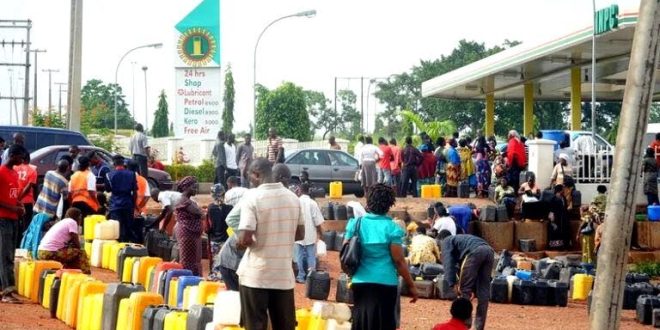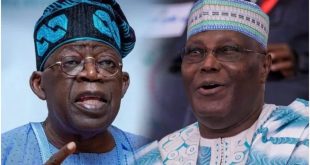The Insight by Lateef Adewole
Nigeria is a strange country. Many things that happen here defy logic. Many times, what is supposed to make us happy is our biggest pain. Worse still, we, most times, look helpless, especially our political leaders who are saddled with the responsibility of managing our affairs and running the country. For different reasons, at different times, by different persons, they find it difficult, if not impossible to do what they were elected to do; make the country work! They often failed woefully.
Nigeria is a country where leaders in position of authority prayed that the monoproduct from which we get huge revenues should not be selling at premium. That its price should be low. What an irony. We are an oil producing country, the 7th position on OPEC ranking. For months now, crude oil has “caught fire” (its price has been through the roof). It peaked at $123.7 per barrel on the 9th of June, 2022, the highest in 14 years since 2008 ($145.31/barrel). At times like this, many oil producing countries laugh to the banks. Their revenues from oil skyrocket.
Sadly, this is not so in our own case in Nigeria. The reverse is the case. Why? Because of our irresponsibility for many decades in how we have managed our God-given natural resources- crude oil. Just as we have mismanaged almost every other thing that God endowed us with, including human, material and natural resources. We have been so blessed that we seem not to know what to do with them. They eventually turn out to be curse for the country and her people. How more unfortunate could a people be?
For the past months, crude has been selling at over 100 dollars per barrel. This was supposed to translate to more funds entering the country’s federation account but it is the opposite. Few days ago, the state governors cried out that they could not pay salaries because of the small allocations they now receive on monthly basis, that is if they get any at all. There are some months there were zero allocations. How can a government survive like that? All these are consequences of NNPC, the organisation managing our oil, not remitting any money to the federal purse. Why? Because the whole revenues from oil have been squandered on petrol subsidy most times.
What is petrol subsidy? This is the amount of money that government pays to make sure that the Premium Motor Spirit (PMS), popularly referred to as petrol, is sold at a regulated / controlled / fixed price prescribed by government, which is usually far lower than what it is supposed to be sold for at market price. Why should this be so? Because it has been government policy, since we rely wholly on importation of the product, because our refineries are not working.
After 66 years of oil discovery and exploration, Nigeria cannot boast of a single functional refinery. We have four that have become drainpipes and cesspool of corruption. They kept being allocated billions of Naira for Turn-Around Maintenance (TAM) but results of which we never see. This has forced the country to device ways to get petrol through importation, whether by outright purchase from foreign refiners or through the Direct Sales Direct Purchase (DSDP) arrangement where crude oil meant for our local refineries is given to foreign refiners in exchange for equivalent quantity of refined petrol, at the global open market rate.
This global open market rate is determined by the cost of the crude oil based on the global oil prices, costs of freigting it abroad, refining and transporting the refined petrol back to Nigeria. These cost elements determine the landing cost at the Nigeria’s shore. Other local costs into tankfarm, storage, and eventual distribution across the country are added. The profit margin for the marketers and other petroleum taxes are included as well. This will give the expected pump price at the retail fuel stations. This template is constantly reviewed by a government agency formerly called Petroleum Products Pricing Regulatory Agancy (PPPRA), now collapsed into Nigerian Midstream and Downstream Petroleum Regulatory Authority (NMDPRA).
Another critical factor that affect this price is the foreign exchange rate. This is because, all these transactions up to when the product gets into the tanks at the depots, are in US dollars. So, relative price of Naira to a dollar substantially affects the petrol price. So, once the crude oil price picks up beyond around $25 per barrel, the depot price of petrol will be higher than the controlled pump price. Who pays for this differential? Government ofcourse. That is where subsidy comes in. Now, how does this make sense? How sustainable?
It is obvious for a long time that continuing to pay subsidy on petrol is uneconomical and unsustainable. This informed the attempted removal in 2012 by the government of former President Jonathan, which was viciously opposed, more for political reasons than altruism, by the people in the current administration. They branded it fraud and that removing it was wickedness designed to punish Nigerians. The 15 day-long sustained massive protest by Occupy Nigeria at the Freedom Park, Ojota, Lagos State, is still fresh in our memories. The removal pushed the price then from N65 to N141 per litre.
It was meant to stop the bleeding of the national revenue which subsidy payments amounted to. Labour and Civil Society Organisations (CSOs) were “used” to scuttle it. By now, we would possibly have moved away from that. Sadly, we have dug deeper into the mess. As at that time, the petrol consumption was about 20 to 30 million per day. Subsidy payment was in the realm of some hundreds of billions of Naira per annum. These figures were criticised as being outrageous. A lawmaker is still in jail, consequent upon the probe instituted to unravel the corruption in the subsidy payments. Unfortunately, no one is actually in prison for the subsidy fraud itself till now.
Ten years down the line, here we are. The subsidy has become a monster that is threatening to consume all of us. The management of it has become more opaque, prone to greater fraud with impunity. The members of the Committee on Downstream, Federal House of Representatives, were lamenting how many of those invited by them on the subsidy matter did not show up with necessary documents and information to ascertain the exact daily consumption figures of petrol. From the Accountant General of the Federation to NNPC officials. They needed them to come and explain why subsidy now gulps the whole revenue generated from the sales of crude oil most times.
In the first half of this year, a subsidy of about N1.545 trillion naira was said to have been paid. From January 2017 to June 2022, a total sum of N4.194 trillion subsidy has been paid: 2017 (N126.539bn), 2018 (N691.586bn), 2019 (N537.209bn), 2020 (N133.625bn), 2021 (N1.159 trn), Jan. to June 2022 (N1.545 trn). The budgeted amount in 2022 alone is N4trillion. This amount is 22.9% of the total 2022 budget of N17.13 trillion. 73.1% of the total capital expenditure (N5.47trn) and 37.2% of total projected revenues (N10.74 trn). The World Bank projected that Nigeria might spend as much as N5 trillion naira on subsidy in 2022, if the current trend at the time continued. How can a country spend such crazily humongous amount on waste? As far as I am concerned, it is a monumental waste to the country and the people.
Yes, most times, the people are made to believe subsidy benefits them but that is not completely true. The statement is not explicit as to who benefits more; the rich or the poor masses? In the real sense, it is the rich and elites that are subsidised. In the first instance, at a time like this where we have shortage or disruption in supply, the people suffer. They queue in fuel stations for hours unending, wasting productive manhours. After, they buy at prices above the controlled N165 per litre. Unfortunately, these same products will be accounted for by NNPC to have been subsidised with trillions of naira.
Then, they won’t remit any money or remit ridiculously small amount from crude oil sales, thereby denying the government at all levels, the needed revenues to provide infrastructures that will benefit all Nigerians, beyond the civil servants who are paid salaries from there. Same subsidy payment is now threatening the payment of salaries as cried out by the state governors and as was accidentally revealed by the now relieved Accountant General of the Federation who said that the federal government now borrow to pay salaries. That could have been responsible for his removal in less than two months after his appointment.
So, how do we get out of this? We definitely cannot continue like this. The beginning of solving a problem is accepting that the problem exists and then identifying it. The initial problem was a government led by someone who never believed there was subsidy. This informed some of his important promoters’ claim that petrol was supposed to be sold at about N40 per litre as against N87. This became a selling point during the campaign in 2014. On assuming office, President Buhari still lived in denial for many months until reality set in. He was forced to increase, not deregulate, the price from N87 to N145 per litre, a whooping 67%. This was someone who had constantly criticised previous administrations who increased pump price of petrol.
As if that was not enough, subsidy was still being paid. What should we call that? Double jeopardy? Then, as crude oil price went up, there were further increases up to N155 and now N165 per litre. Yet, there is fuel scarcity and subsidy is being paid. This is beyond double but multiple jeopardy. The non-functioning of the refineries is responsible. Otherwise, since we own the crude, we could have refined it by ourselves. There are NNPC depots for storage across the country. They are linked by pipelines laid across the country which would have eliminated the more expensive road-damaging bridging by trucks. If all these are functional, most of the price elements in the price template would be eliminated. But, they are not functional.
The pipelines are vandalised. Products are stolen through the hundreds of holes on the distribution pipelines. There must possibly be international conspiracy against Nigeria being independent refiner. With our population and the volume of petroleum products (PMS, AGO, HHK, ATK) importation into Nigeria, those international suppliers and their countries won’t applaud our efforts to be self-sufficient and self-reliant. Nothing is impossible in global energy politics.
The lack of transparency in the import regime by the NNPC is another big issue. Up till now, no one can give, with certainty, our daily consumption figure for petrol. It is always approximate figures shrouded in secrecy, that cannot be scientifically backed. Many times, as someone involved in the sector in the last two decades, I have tried to wrap my head around the bandied figures of 65 to 75 million litres of petrol as our daily consumption. Even higher sometimes. How is that possible, with the more difficult economic challenges, increasing poverty, higher unemployment figures, poorer minimum wage when inflation, exchange rates, etc, are factored into it, low purchasing power, and so on? Who is “drinking” the fuel?
Smuggling has being the most plausible excuse for such ludicrous consumption figures. Our borders are very porous. The increase in the figures still in the last two years, raised questions as to the essence of the border closure. All the objectives for taking that action were defeated. In addition to that, crimes have escalated due to infiltration of criminals and light and heavy weapons into the country. Price of local rice has not crashed. So, of what benefit was the closure? Senseless.
What is the way forward? Nigerians need to make a choice between throwing money down the drain or sacrificing and saving the nation by accepting full deregulation. Diesel has been selling at very high cost since and nobody has died. Aviation fuel has been high and the people who want to fly are adjusting to it. Anyone who can afford a personal car should be ready to fuel it at any cost. The rich have multiple cars using subsided petrol while the poor, who they manipulate to cry against deregulation, have none. The mass transit use diesel. The small buses use petrol but no one will be paying for transport fare from morning till night. So, movements are on need basis. Trekking and cycling should also be encouraged. They are healthier (winks).
Even if the people are ready to sacrifice, what about our leaders? Are they? People do not trust the leaders to do the right things. When the citizens watch helplessly how the people in authority squander the same scarce resources, living in opulence, at the expense of the people, why would the people agree? A deregulated petrol price means freeing the subsidy money and making them available to the political office holders. Will they use such fund judiciously or steal it? This is the crux of the matter.
I am not sure if the refineries can be revived, effectively and efficiently operated and sustained by government only again. The compromise is too much. They have to be partly privatised if not wholly. A Public Private Partnership (PPP) model should be used where government still have shares but private sector is made to buy into them, operate and manage them. This might work. Licences have been given for private modular refineries but most of them produce diesel, not petrol. And to meet a 65 million litres per day consumption will be a tall order for them.
But, they should continue to be encouraged to come on stream. Some complained of shortage of crude oil feeds to refine. This should be looked into. I guess we are all waiting on Dangote to start production at his 650,000bpd refinery in Lagos. Definitely, this can meet our local demands when operating at full capacity. Isn’t it better than nothing? Although, Dangote will not sell at “giveaway” price but competitive. However, with the elimination of many cost elements which are part of refining abroad, his will be far cheaper. The cost of dollars required for the importation that will be eliminated will also help.
In all, there is need for sincerity on the parts of everyone; the leaders and the led. We are at a cross road. If we don’t kill subsidy, subsidy will kill us. We can see what is happening in Sri Lanka now where petrol is now expected based on timetable. Venezuela, another oil producing country like us had gone down the route and collapsed now. A critical decision needs to be made in this regard. I know that such decision will be difficult to make at this time by the government of the ruling party APC, given that election is around the corner in 2023. No government or party will likely risk that.
It will become a deadly campaign weapon in the hands of the opposition parties. And people in APC know better since they did the same while in opposition. Jonathan and PDP never recovered from the 2012 attempted deregulation. It cost them the presidency eventually in 2015. This is why we should engage our leading presidential candidates on issues to find out how they intend to save the country from this haemorrhaging situation that subsidy represents. We, definitely, cannot continue like this.
May God continue to protect us and guide us aright.
God Bless Nigeria.
You can follow me on:
Twitter: @lateef_adewole
Facebook: Lateef Adewole.
Email: lateefadewole23@gmail.com
Whatsapp: +2348179512401
Share, forward and retweet, as sharing makes love go round!



